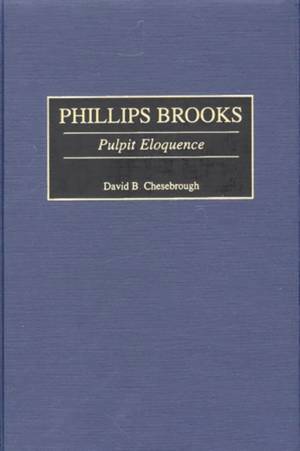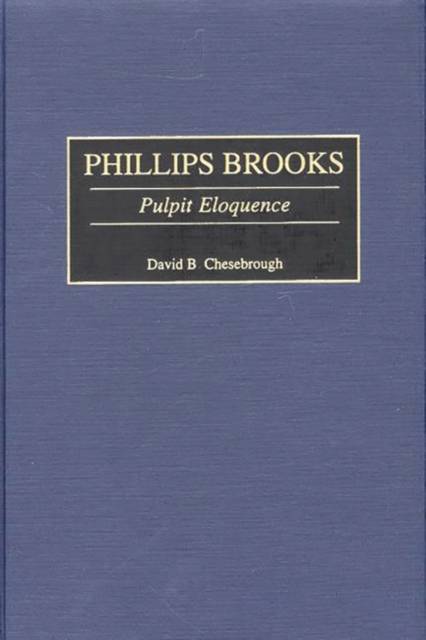
- Afhalen na 1 uur in een winkel met voorraad
- Gratis thuislevering in België vanaf € 30
- Ruim aanbod met 7 miljoen producten
- Afhalen na 1 uur in een winkel met voorraad
- Gratis thuislevering in België vanaf € 30
- Ruim aanbod met 7 miljoen producten
Zoeken
Omschrijving
Phillips Brooks, author of the carol O Little Town of Bethlehem, was the rector of the Trinity Episcopal Church in Boston for 22 years and the Bishop of Massachusetts for 15 months until his death in 1893. This volume in the Great American Orators series focuses on Brooks' oratorical style and the public's response to his rhetoric. Chesebrough provides a biographical sketch of Brooks' life emphasizing the development and use of his oratorical skills and placing him within the secular and ecclesiastical contexts of his times. Attention is given to Brooks' development as a public speaker and to his manner of sermon preparation and delivery. Three of Brooks' sermons are printed in their entirety: Abraham Lincoln, The Cradle of the Lord, and Help from the Hills, preceded by introductory remarks and a brief analysis of the sermon. This examination of Brooks' rhetoric will appeal to scholars of rhetoric and of American theology and American religious history, especially Episcopal history.
Specificaties
Betrokkenen
- Auteur(s):
- Uitgeverij:
Inhoud
- Aantal bladzijden:
- 216
- Taal:
- Engels
- Reeks:
- Reeksnummer:
- nr. 30
Eigenschappen
- Productcode (EAN):
- 9780313313745
- Verschijningsdatum:
- 28/02/2001
- Uitvoering:
- Hardcover
- Formaat:
- Genaaid
- Afmetingen:
- 165 mm x 244 mm
- Gewicht:
- 566 g

Alleen bij Standaard Boekhandel
+ 237 punten op je klantenkaart van Standaard Boekhandel
Beoordelingen
We publiceren alleen reviews die voldoen aan de voorwaarden voor reviews. Bekijk onze voorwaarden voor reviews.











